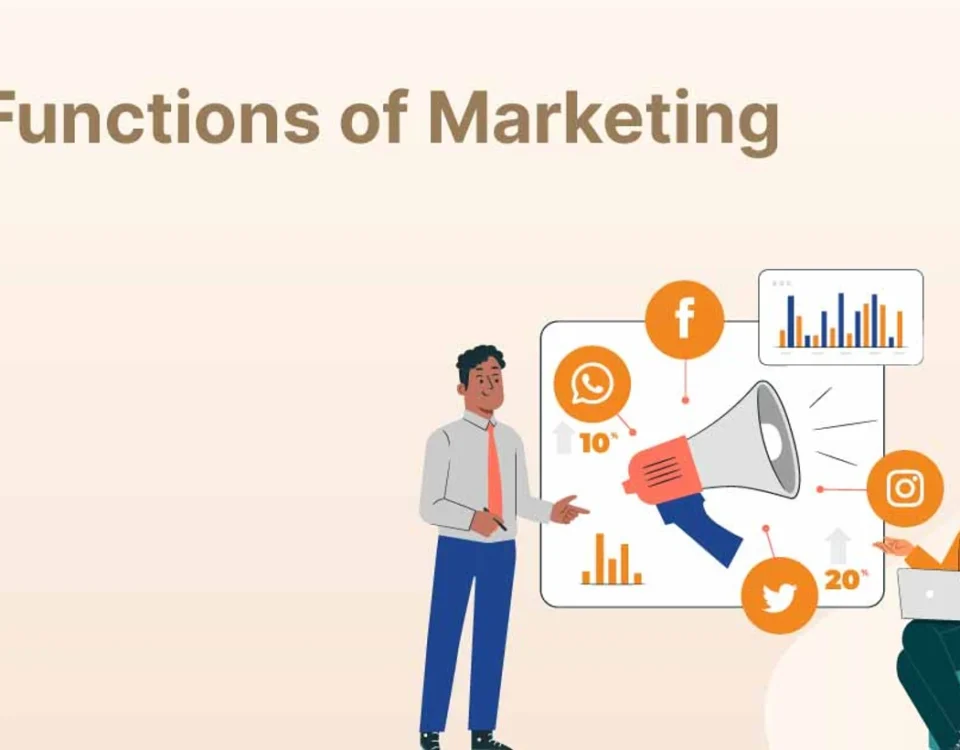Crafting Comprehensive Digital Marketing Plans for Restaurants in India 2024

Navigating Success: Digital Marketing Plans for Startups in 2024
December 1, 2023
Unlocking Insights: The Multifaceted Functions of Marketing Research
March 28, 2024Introduction:
In the modern era, where the digital landscape is constantly evolving, the significance of a robust digital marketing strategy for restaurants cannot be overstated. With an increasing number of consumers turning to the internet for dining decisions, restaurants must adapt and leverage digital channels to enhance visibility, engage with their target audience, and ultimately drive foot traffic and online orders. This article aims to provide a comprehensive guide on developing effective digital marketing plans tailored specifically for restaurants.
- Understanding Your Brand and Target Audience: Before delving into digital marketing strategies, it’s crucial to have a clear understanding of your restaurant’s brand identity and the audience you aim to attract. Consider the unique selling points of your establishment, such as cuisine, ambiance, and values. Define your target audience, taking into account demographics, preferences, and behaviors.
- Building a User-Friendly Website: A restaurant’s website serves as its digital storefront. Ensure that your website is user-friendly, visually appealing, and optimized for both desktop and mobile devices. Include essential information such as the menu, contact details, operating hours, and an online reservation or ordering system if applicable. Implementing high-quality visuals and compelling content is essential for creating an engaging online experience.
- Leveraging Social Media Platforms: Social media is a powerful tool for restaurants to connect with customers, showcase their culinary offerings, and build a loyal community. Identify the platforms most relevant to your target audience—Instagram and Facebook are often key players in the restaurant industry. Regularly share visually appealing content, including high-quality images of dishes, behind-the-scenes glimpses, and customer testimonials.
- Content Marketing and Search Engine Optimization (SEO): Develop a content marketing strategy that includes blog posts, recipe features, and chef interviews. Incorporate SEO best practices to improve your restaurant’s visibility on search engines. Utilize keywords related to your cuisine, location, and unique offerings to attract organic traffic.
- Email Marketing Campaigns: Build and maintain a robust email list to keep your audience informed about special promotions, new menu items, and upcoming events. Craft engaging and personalized email campaigns to encourage repeat visits and customer loyalty. Segment your email list based on customer preferences for more targeted communication.
- Online Reviews and Reputation Management: Online reviews play a significant role in influencing potential customers. Encourage satisfied customers to leave positive reviews on platforms like Google, Yelp, and TripAdvisor. Respond promptly to both positive and negative reviews, showcasing your commitment to customer satisfaction. Use feedback to make improvements and highlight positive experiences.
- Utilize Influencer Marketing: Collaborate with local food influencers and bloggers to extend your restaurant’s reach. Influencers can create authentic content that resonates with their followers, providing social proof and building trust. Choose influencers whose audience aligns with your target demographic and design campaigns that showcase the unique aspects of your restaurant.
- Implement Paid Advertising: Invest in targeted paid advertising to amplify your restaurant’s online presence. Platforms like Google Ads, Facebook Ads, and Instagram Ads offer precise targeting options. Allocate your budget strategically, focusing on promotions, seasonal offerings, or special events to attract attention and drive traffic.
- Online Ordering and Delivery Services: In response to the growing demand for convenience, consider implementing online ordering and delivery services. Partner with popular food delivery platforms or invest in an in-house system. Promote these services prominently on your website and social media channels to cater to customers looking for hassle-free dining options.
- Embrace Video Marketing: Video content is highly engaging and shareable. Create short videos showcasing your chefs in action, behind-the-scenes glimpses, or cooking tutorials. Live streaming on platforms like Facebook or Instagram can also help establish a real-time connection with your audience.
- Implement Loyalty Programs: Reward your loyal customers through digital loyalty programs. Encourage repeat visits by offering discounts, exclusive promotions, or freebies to customers who sign up for your loyalty program. Promote these programs through your digital channels to attract new sign-ups.
- Analytics and Continuous Improvement: Regularly monitor the performance of your digital marketing efforts using analytics tools. Track metrics such as website traffic, social media engagement, conversion rates, and customer feedback. Use the insights gained to refine and optimize your strategies for better results.
Conclusion:
Crafting an effective digital marketing plan for a restaurant requires a combination of understanding your brand, identifying your target audience, and utilizing a mix of digital channels. By building a user-friendly website, engaging on social media, implementing content marketing, and embracing emerging trends like video marketing, restaurants can establish a strong online presence, connect with their audience, and ultimately drive traffic and revenue in the competitive world of dining. Digital marketing isn’t just a strategy; it’s a dynamic and ongoing process that, when executed thoughtfully, can elevate a restaurant’s success in the digital age.
Elevate your restaurant’s online presence with Yug Technology, the leading Digital Marketing Company in Udaipur. Our team of experts specializes in crafting tailored digital marketing strategies, including website design, SEO, social media management, and more. Partner with us to stand out in the digital landscape, attract your target audience, and drive success in the competitive restaurant industry.




